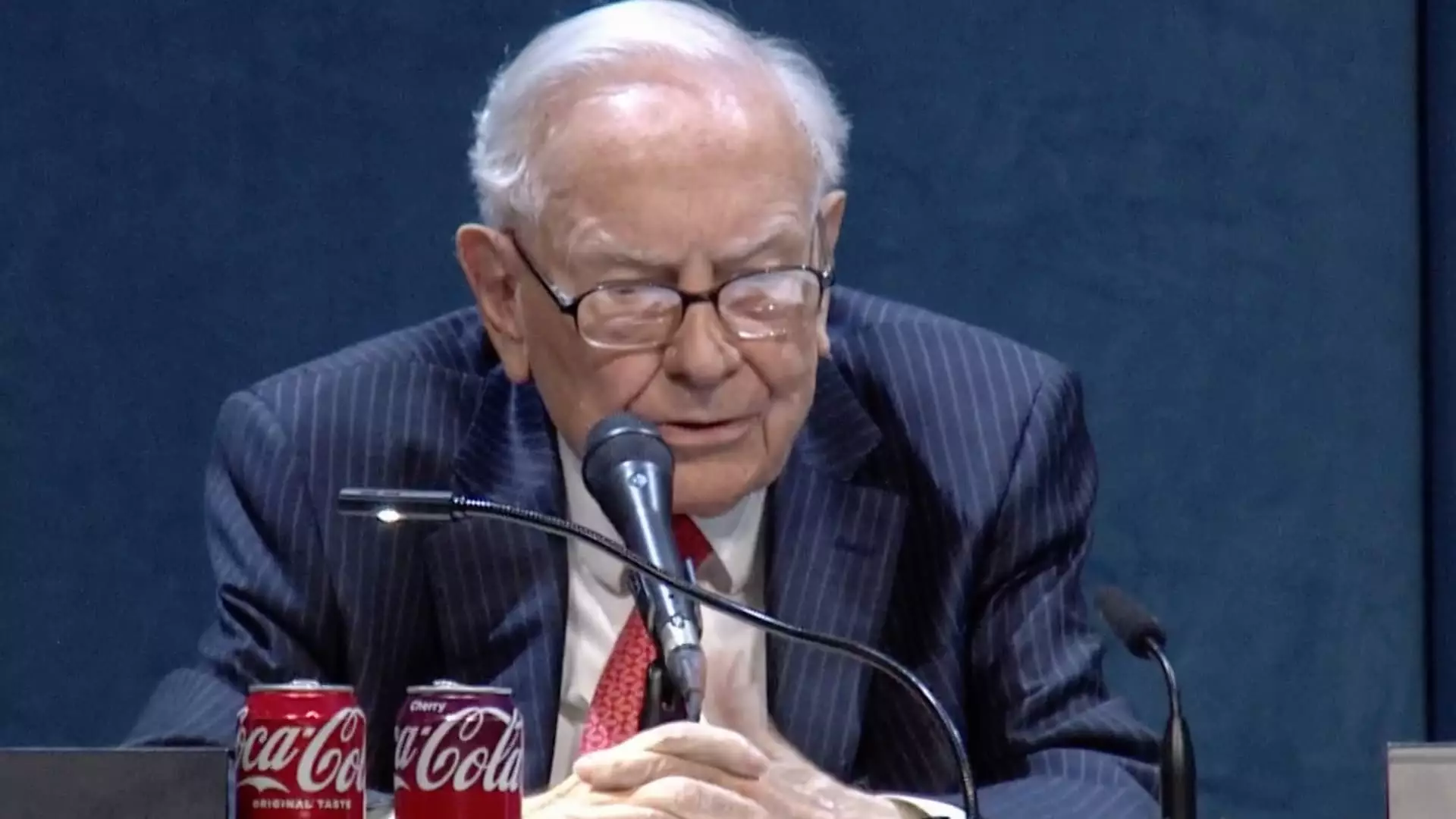Warren Buffett’s tenure at the helm of Berkshire Hathaway has been synonymous with success, earning him reverence as one of the most astute investors in history. However, his recent announcement about stepping back from the CEO role has not sparked the anticipated rally in Berkshire Hathaway shares; instead, the stock has plummeted by over 10%. This downturn is perplexing given Buffett’s long-standing reputation and the so-called “Buffett premium” — the heightened value investors typically assign to companies led by influential figures like him. With the stock currently underperforming the S&P 500 by 15 percentage points, one must wonder if the loyalty associated with Buffett’s leadership is starting to wane. Investors seem to be questioning whether the Berkshire of the future can retain the same level of excellence without its guiding star.
Understanding the Impact of Buffett’s Exit
Buffett’s announcement is rooted in personal considerations, reflecting the realities of aging. While he remains as chairman and projects confidence in his handpicked successor, Greg Abel, many stakeholders are clearly apprehensive. David Kass, a finance professor and seasoned Berkshire investor, articulated his astonishment at the depth of the stock’s decline, even before Buffett officially steps down. This raises crucial questions: Is this drop merely a reactionary sell-off fueled by uncertainty, or does it signify deeper issues within the core operations of Berkshire Hathaway that may not be as readily apparent?
The recent 14% decline in operating earnings during the first quarter also sheds light on a potentially fragile foundation. With Berkshire’s diversified portfolio, a drop in earnings from its insurance and railroad sectors indicates that the conglomerate might be facing challenges that extend beyond the emotional volatility tied to Buffett’s decision.
Algorithmic Trading and Market Sentiment
Moreover, the role of algorithmic trading cannot be overlooked. Analysts, such as Kevin Heal, suggest that automated trading systems may have exacerbated the initial sell-off, handling share transactions in response to the news without contextual analysis. This increasing reliance on technology within stock markets highlights a broader insulation from individual investor acumen, wherein automated algorithms can hastily misinterpret or overact to market movements. Thus, it’s conceivable that while Buffett’s departure is a significant headline, the prolonged repercussions on share prices could reflect a brewing confidence crisis among retail and institutional investors alike.
Meyer Shields from Keefe, Bruyette & Woods estimates that the Buffett premium could be lingering, albeit diminished. As the sentiment continues to shift, more investors may recalibrate their expectations and reevaluate their positions. With Berkshire Hathaway still holding a valuation surpassing $1 trillion, the question shifts toward how well the company can navigate this pivotal transition in leadership and whether it can sustain its historical growth trajectory amid inevitable market fluctuations.
In a landscape where the same stock that once enjoyed meteoric rises is now facing skepticism, potential investors must scrutinize both Berkshire’s intrinsic value and the perceptions shaped by its founder’s next chapter. The reality is stark; as Buffett contemplates his legacy, the fate of Berkshire Hathaway teeters on the edge of uncertainty.

